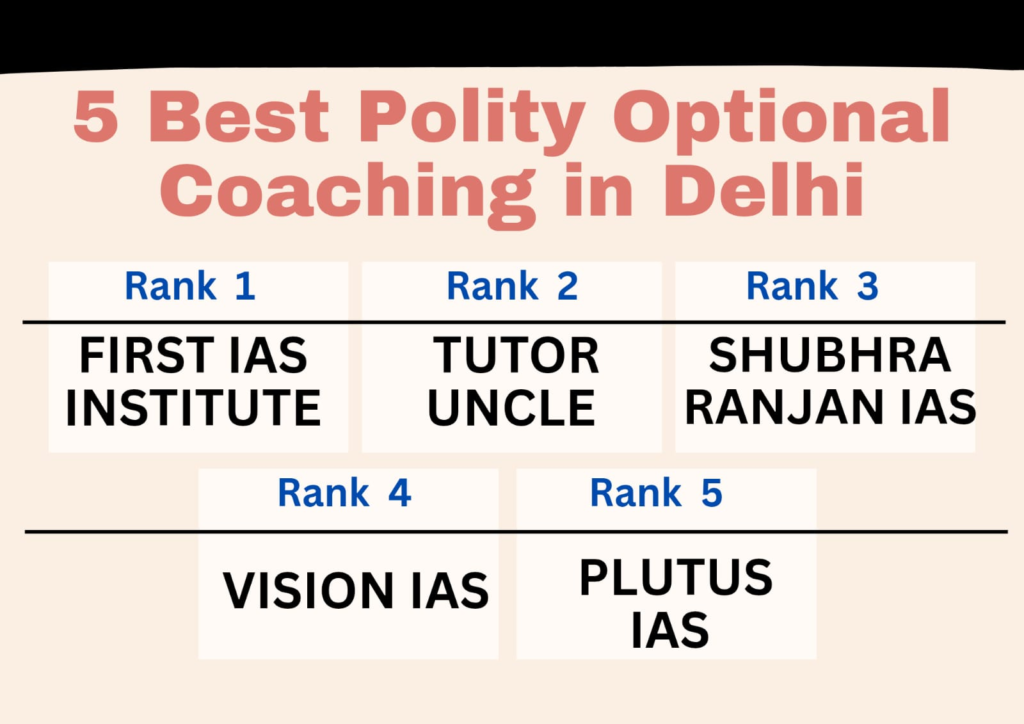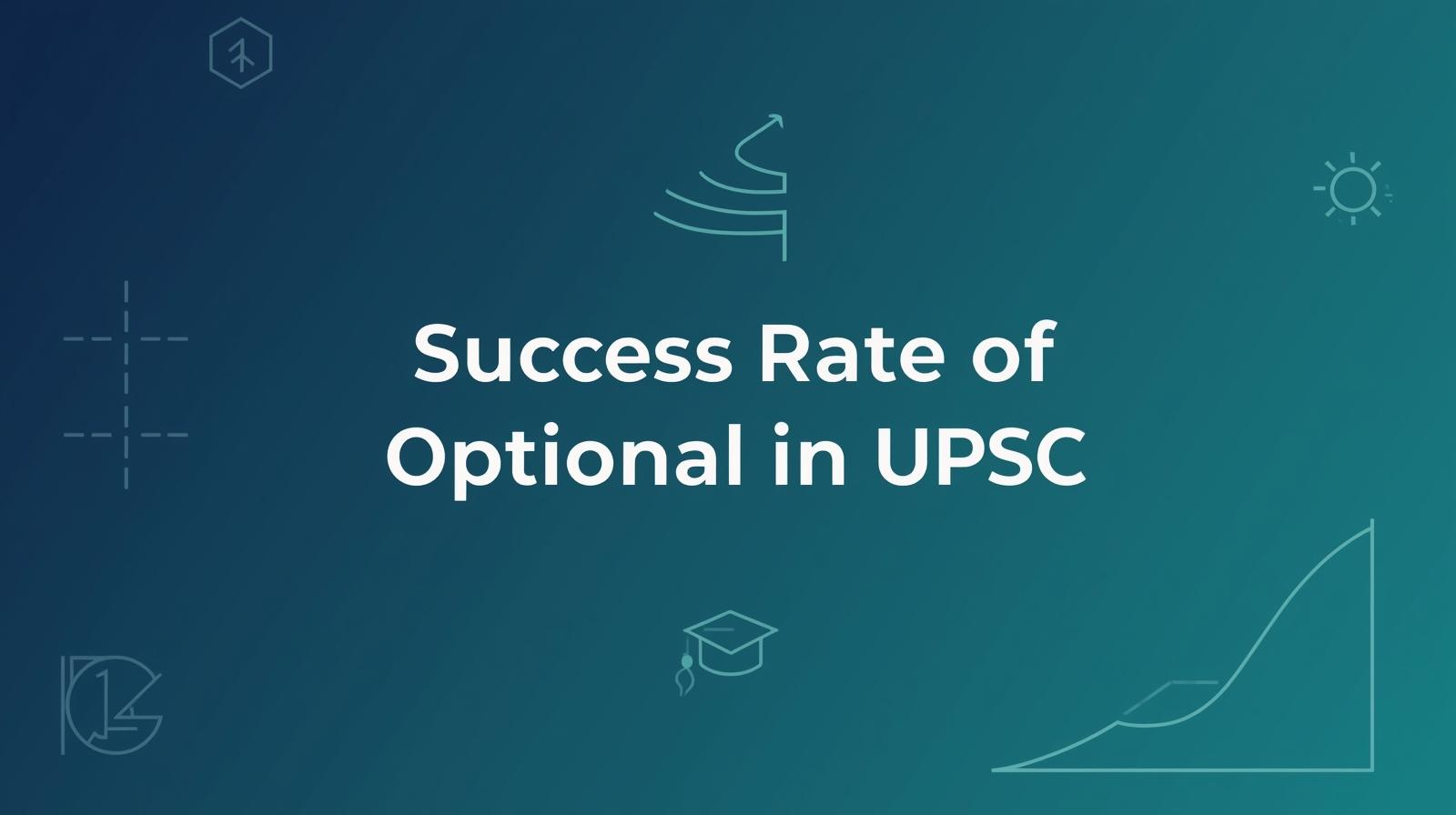Political Science and International Relations (PSIR) consistently shows a healthy success rate in the UPSC Civil Services Examination, often performing above the overall average for all optional subjects. However, the raw numbers don’t tell the whole story; the subject’s immense popularity and the high quality of candidates it attracts are crucial factors that contribute to this strong performance. Ultimately, the data confirms that PSIR is a viable and rewarding optional, but its success rate is an indicator of its potential, not a guarantee of an individual’s success.
Choosing an optional subject is one of the most pivotal decisions in a UPSC aspirant’s journey. It’s a choice that can significantly influence the final rank. In this high-stakes decision-making process, the “success rate” of different subjects often becomes a central point of analysis. Aspirants pore over the UPSC’s annual reports, trying to decode the numbers and identify the “safest” or “most scoring” optional. Among the top contenders, PSIR consistently garners significant attention. This article delves deep into the success rate of PSIR, moving beyond the statistics to explore the qualitative factors that make it a consistently high-performing subject.
Free Demo Class for PSIR Optional By – FIRST IAS INSTITUTE
Also Read: 5 Best Polity Optional Coaching in Delhi
A Look at the Numbers: What the UPSC Reports Say
Before we analyze the ‘why’, it’s important to understand the ‘what’. The Union Public Service Commission releases annual reports containing detailed statistics on the Civil Services Examination, including data on optional subjects.
Understanding the Metrics
When looking at the data, we primarily deal with two figures: the number of candidates who appeared for the Mains with a particular optional, and the number of candidates who were finally recommended for service.
The Success Rate is calculated using a simple formula:
Success Rate = (Number of Recommended Candidates / Number of Appeared Candidates) * 100
PSIR’s General Performance Trend
PSIR stands out for two reasons: its immense popularity and its solid performance.
- Popularity: It is consistently one of the most chosen optional subjects, with thousands of candidates opting for it every year. This is second only to subjects like Sociology and Geography in most years.
- Performance: The success rate for PSIR typically hovers in the 8% to 10% range. This figure is significant because it is often higher than the overall success rate of all optional subjects combined, which usually lies between 6% and 8%.
The Caveat of Raw Data
While the numbers look encouraging, it’s crucial to interpret them with caution. A high success rate for an obscure optional subject chosen by only a handful of candidates is not statistically significant. The real story of PSIR’s strength lies in its ability to produce a large absolute number of successful candidates year after year, despite the massive number of people who take it. Its high popularity creates intense competition, yet it continues to perform well, which speaks volumes about its viability as an optional.

Beyond the Numbers: Qualitative Factors Behind PSIR’s Success
The numbers confirm that PSIR does well, but they don’t explain why. The true reasons for its consistent success lie in the nature of the subject and its alignment with the overall scheme of the Civil Services Examination.
The Overlap with General Studies
This is arguably the single most significant factor contributing to PSIR’s success. The syllabus has an extensive and direct overlap with the General Studies papers, creating a powerful synergy that makes preparation more efficient and integrated.
- PSIR Paper 1 (Political Theory & Indian Politics) has a near-complete overlap with GS Paper 2 (Polity & Governance). Topics like the Indian Constitution, Parliament, Judiciary, and Federalism are common to both. Furthermore, the political thinkers studied in Section A are immensely helpful for GS Paper 4 (Ethics) and the Essay paper.
- PSIR Paper 2 (Comparative Politics & International Relations) directly covers the entire International Relations segment of GS Paper 2. An in-depth study of IR theories and India’s foreign policy gives PSIR students a clear edge in writing analytical and well-structured answers in GS.
This overlap means that time spent preparing for PSIR directly contributes to the GS score. This integrated preparation saves precious time and reinforces concepts, as knowledge gained in one area deepens understanding in the other.
The Quality of Candidates
PSIR’s success has become a self-fulfilling prophecy. Because it is widely regarded as a relevant, interesting, and high-scoring optional, it naturally attracts some of the most serious and capable aspirants. Candidates from diverse academic backgrounds, including humanities, law, and even engineering, are drawn to its logical and analytical framework. This high-quality input of candidates—who are often dedicated and hard-working—naturally translates into a high-quality output in the form of excellent results.
Abundance of Quality Resources
The popularity of PSIR has led to the development of a robust ecosystem of resources. There is a wide availability of high-quality materials for aspirants, which is not always the case for other optional subjects. This includes:
- Standard Textbooks: Seminal works by authors like Andrew Heywood, O.P. Gauba, and Rajiv Sikri are easily accessible.
- Coaching and Mentorship: Many experienced teachers and reputable institutions provide specialized guidance for PSIR.
- Online Materials and Toppers’ Notes: A wealth of online resources, current affairs materials, and notes from previously successful candidates are available.
This accessibility lowers the entry barrier and ensures that any dedicated student can find the resources needed to prepare effectively.
The Dynamic and Analytical Nature of the Subject
PSIR is not a subject that can be mastered through rote memorization. It compels an aspirant to think critically, form reasoned arguments, and analyze contemporary issues through theoretical lenses. This process of learning develops crucial analytical skills. These skills are not just beneficial for the written papers but are invaluable for the Personality Test (Interview). A PSIR student is well-equipped to discuss and debate issues related to governance, foreign policy, and socio-political problems, which are common topics in the interview.
Is the Success Rate a Guarantee? A Word of Cautio
Seeing the encouraging numbers and understanding the qualitative advantages, it can be tempting to view PSIR as a “safe” or “guaranteed” path to success. This is a dangerous misconception.
Correlation is Not Causation
PSIR’s high success rate is a correlation, not a causation. The subject itself is not a magic wand that guarantees selection. The success rate is a reflection of the fact that capable and hardworking students who choose PSIR perform well due to the subject’s synergy with the exam and their own dedicated efforts. The subject enables success; it doesn’t create it out of thin air.
Also Read: 5 Best Polity Optional Coaching in Delhi
The Pitfalls of Popularity
The immense popularity of PSIR means that the competition is extremely fierce. To secure a high score, your answer script has to stand out from thousands of others. This requires a level of depth, clarity, and analytical originality that goes far beyond generic knowledge. Simply completing the syllabus is not enough; you must aim for mastery to differentiate yourself from the crowd.
The Importance of Genuine Interest
Finally, one should never choose an optional subject based solely on its success rate. The PSIR syllabus is vast, demanding extensive reading of dense theoretical texts and a constant engagement with complex political and international news. Without a genuine interest in these areas, the preparation journey can become an unbearable chore, leading to burnout and poor performance. The highest scores are almost always achieved by those who are genuinely fascinated by the subject matter.
The Final Verdict: How Should You Interpret the Success Rate?
So, what’s the bottom line? The success rate of PSIR is a strong positive indicator, but it’s not a deterministic factor that should dictate your choice.
You should view the success rate as an affirmation that the subject has a proven track record. It tells you that if you put in the required effort, the subject is rewarding and high scores are very much achievable. It reflects the subject’s incredible synergy with the overall exam structure and the high caliber of competition you will face.
Your decision to choose an optional should rest on a tripod of factors: a thorough analysis of the syllabus, your genuine interest in the subject, and its strategic overlap with General Studies. If PSIR aligns with your interests and aptitude on these three fronts, its healthy success rate should give you the confidence that you are choosing a path that many have successfully navigated before you.

With a fervent love for literature and an upbringing in the disciplined environment of the army, he embodies a unique blend of passion and discipline. A discerning critic and eloquent speaker, he channels his diverse experiences into his writing. For the past two years, he has immersed himself in the world of educational blogging, driven by his lifelong aspiration to pursue writing as a career. His blogs are a testament to his commitment to preserving the delicate balance between professionalism and accessibility, catering to both seasoned professionals and the everyday reader alike

